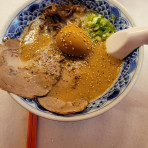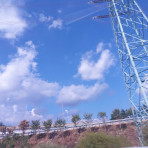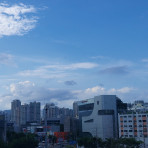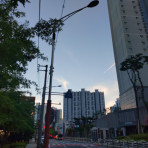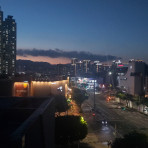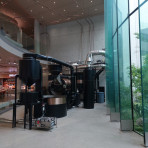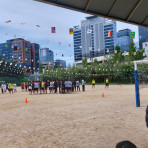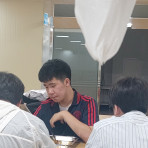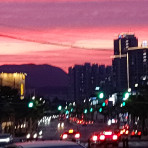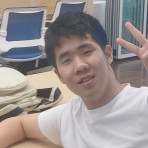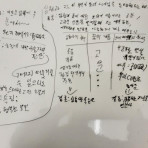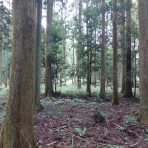Uyghur forced labor policies seen continuing through 2025: report
본문
Fri, 23 Feb 2024 14:23:52 -0500

China has expanded its forced labor transfer program in far-western Xinjiang – moving Uyghurs from rural areas to work in factories – and plans to continue doing so through 2025, a new report says, warning that it will have far-reaching consequences for the 12-million strong ethnic minority.
Under a program that Beijing says is aimed at poverty alleviation, high-level Chinese policy and state planning documents call for intensified employment requirements targeting Uyghurs, according to research conducted by German scholar Adrian Zenz published in a report by the Jamestown Foundation, a Washington-based think tank.
But activists and experts say the program is thinly-disguised forced labor: Uprooting Uyghurs and other Turkic minorities from their homes and forcing them to work in factories producing everything from textiles and chemicals to car parts.
Longer-term, Beijing is using the program to achieve a larger goal, Zenz told Radio Free Asia: Control the Uyghur people, break apart communities, undermine their culture and ultimately assimilate them into Chinese society.
“Uyghurs society is going to be changed in the long term through labor transfer,” he said. “So it's a long-term strategy, and that’s why China is doubling down on it.”
“China is intensifying it because with labor transfer you can achieve cultural assimilation,” said Zenz, director of China Studies at the Victims of Communism Memorial Foundation in Washington.
“You can achieve linguistic assimilation,” he told RFA. “You can break apart communities – traditional communities – and break apart families.”
Corporate scrutiny
The report comes out amid intensifying pressure on multinational companies with operations in the region to cut their ties.
Earlier this month, German chemical giant BASF said it is pulling out of its joint ventures in Xinjiang. That came after a German newspaper in November reported close ties between the labor transfer program and a regional partner of BASF.
The SAIC-Volkswagen plant is seen on the outskirts of Urumqi, capital of northwestern China's Xinjiang region, April 22, 2021. (Mark Schiefelbein/AP)
Meanwhile, automaker Volkswagen also has told RFA that it is in talks with its joint venture partner, SAIC-Volkswagen, over the future of its Xinjiang operations.
A report issued in early February by Human Rights Watch suggested that Volkswagen may be using aluminum made by Uyghur forced labor in China, and has failed to minimize this possibility.
The United States has called on China to end Uyghur forced labor practices and has enacted legislation to prevent the import of products made with forced labor.
The European Union lacks strict regulations that target goods made with forced labor, but is working on the adoption of a law that would hold large companies to account for their human rights and environmental impacts across their global supply chains.
Separately, Germany has a supply chain law that requires large companies to ensure that their suppliers and partners respect all human rights and subjects the companies to a comprehensive due diligence obligation covering the entire supply chain.
Two systems
Authorities in northwestern China’s vast Xinjiang region operate the world’s largest system of state-imposed forced labor under two systems targeting Uyghurs and other Turkic peoples, Zenz’s report says.
The first one is forced labor connected to “re-education” camps, where an estimated 1.8 million Uyghurs and others have been detained against their will beginning around 2017. There they received coercive skills training and were forced to work in on-site or off-site factories.
Zenz’s report says that evidence indicates that since early 2020, this policy is no longer active, although authorities still arbitrarily detain Uyghurs and others.
The second separate system, the Poverty Alleviation Through Labor Transfer policy, coercively trains and transfers non-detained rural laborers from the agricultural sector into secondary sector work that transforms raw materials into goods for sale or consumption, and tertiary sector work that involves the sale or trade of services.
The United States and other Western governments have expressed deep concern about the repression and arbitrary detentions of Uyghurs and other Turkic minorities in Xinjiang, with some declaring that China’s actions amount to genocide and crimes against humanity.
‘Groundless accusation’
On Feb. 17, at the Munich Security Conference in Germany, Chinese Foreign Minister Wang Yi was asked by an interviewer about the forced labor accusations in Xinjiang in light of the recent company news about BASF and Volkswagen.
Chinese Foreign Minister Wang Yi delivers a speech at the Munich Security Conference in Munich, Germany, Feb. 17, 2024. (Matthias Schrader/AP)
“The so-called forced labor is only a groundless accusation,” Wang said in response.
“Isn’t there any right to work for minority ethnic groups such as the Uyghurs in Xinjiang?” he asked. “If you make them unemployed, unable to work, and unable to sell their products under the pretext of forced labor, is this humane?”
Wang said that the growth of Xinjiang’s Uyghur population from less than 2 million in 1955, when the autonomous region was established, to 12 million today was proof that the “so-called genocide is a sheer fabrication and a lie.”
However, the actual Uyghur population in China was 3.64 million, according to official data from the country’s first census conducted in 1953, while Xinjiang’s population was less than 3.4 million. Also, the Han Chinese population in Xinjiang was only 6% in that census but now is more than half as many Han Chinese have migrated to the region.
Wang also said China has safeguarded human rights in Xinjiang as demonstrated by an increase in the average lifespan of Uyghurs from 30 years to 75.6 years, and that religious freedom and ethnic languages and cultures were well-protected by the Chinese government in the region.
Dolkun Isa, president of the World Uyghur Congress, said Wang’s dismissal of allegations of the Uyghur genocide and forced labor signaled “a concerning intent to persist with genocidal policies” in Xinjiang.
“Merely a week prior, one of Germany’s largest chemical companies, BASF, issued international apologies and announced their withdrawal from the Uyghur region due to their association with Uyghur genocide implications,” he told RFA.
“Similarly, other major corporations like Volkswagen face mounting international pressure over their involvement in Uyghur forced labor, with discussions underway for their withdrawal from the Uyghur region,” Isa said. “Given the substantial evidence at hand, Wang Yi's denial of these allegations is untenable.”
Zenz said that there is still personal testimonies and documentary evidence that Uyghur forced labor exists.
“The Chinese think they can openly lie and propagate an alternative reality because they can control access to Xinjiang,” he said.
Additional reporting by Irade for RFA Uyghur. Edited by Malcolm Foster.
China has expanded its forced labor transfer program in far-western Xinjiang – moving Uyghurs from rural areas to work in factories – and plans to continue doing so through 2025, a new report says, warning that it will have far-reaching consequences for the 12-million strong ethnic minority.
Under a program that Beijing says is aimed at poverty alleviation, high-level Chinese policy and state planning documents call for intensified employment requirements targeting Uyghurs, according to research conducted by German scholar Adrian Zenz published in a report by the Jamestown Foundation, a Washington-based think tank.
But activists and experts say the program is thinly-disguised forced labor: Uprooting Uyghurs and other Turkic minorities from their homes and forcing them to work in factories producing everything from textiles and chemicals to car parts.
Longer-term, Beijing is using the program to achieve a larger goal, Zenz told Radio Free Asia: Control the Uyghur people, break apart communities, undermine their culture and ultimately assimilate them into Chinese society.
“Uyghurs society is going to be changed in the long term through labor transfer,” he said. “So it's a long-term strategy, and that’s why China is doubling down on it.”
“China is intensifying it because with labor transfer you can achieve cultural assimilation,” said Zenz, director of China Studies at the Victims of Communism Memorial Foundation in Washington.
“You can achieve linguistic assimilation,” he told RFA. “You can break apart communities – traditional communities – and break apart families.”
Corporate scrutiny
The report comes out amid intensifying pressure on multinational companies with operations in the region to cut their ties.
Earlier this month, German chemical giant BASF said it is pulling out of its joint ventures in Xinjiang. That came after a German newspaper in November reported close ties between the labor transfer program and a regional partner of BASF.
The SAIC-Volkswagen plant is seen on the outskirts of Urumqi, capital of northwestern China's Xinjiang region, April 22, 2021. (Mark Schiefelbein/AP)
Meanwhile, automaker Volkswagen also has told RFA that it is in talks with its joint venture partner, SAIC-Volkswagen, over the future of its Xinjiang operations.
A report issued in early February by Human Rights Watch suggested that Volkswagen may be using aluminum made by Uyghur forced labor in China, and has failed to minimize this possibility.
The United States has called on China to end Uyghur forced labor practices and has enacted legislation to prevent the import of products made with forced labor.
The European Union lacks strict regulations that target goods made with forced labor, but is working on the adoption of a law that would hold large companies to account for their human rights and environmental impacts across their global supply chains.
Separately, Germany has a supply chain law that requires large companies to ensure that their suppliers and partners respect all human rights and subjects the companies to a comprehensive due diligence obligation covering the entire supply chain.
Two systems
Authorities in northwestern China’s vast Xinjiang region operate the world’s largest system of state-imposed forced labor under two systems targeting Uyghurs and other Turkic peoples, Zenz’s report says.
The first one is forced labor connected to “re-education” camps, where an estimated 1.8 million Uyghurs and others have been detained against their will beginning around 2017. There they received coercive skills training and were forced to work in on-site or off-site factories.
Zenz’s report says that evidence indicates that since early 2020, this policy is no longer active, although authorities still arbitrarily detain Uyghurs and others.
The second separate system, the Poverty Alleviation Through Labor Transfer policy, coercively trains and transfers non-detained rural laborers from the agricultural sector into secondary sector work that transforms raw materials into goods for sale or consumption, and tertiary sector work that involves the sale or trade of services.
The United States and other Western governments have expressed deep concern about the repression and arbitrary detentions of Uyghurs and other Turkic minorities in Xinjiang, with some declaring that China’s actions amount to genocide and crimes against humanity.
‘Groundless accusation’
On Feb. 17, at the Munich Security Conference in Germany, Chinese Foreign Minister Wang Yi was asked by an interviewer about the forced labor accusations in Xinjiang in light of the recent company news about BASF and Volkswagen.
Chinese Foreign Minister Wang Yi delivers a speech at the Munich Security Conference in Munich, Germany, Feb. 17, 2024. (Matthias Schrader/AP)
“The so-called forced labor is only a groundless accusation,” Wang said in response.
“Isn’t there any right to work for minority ethnic groups such as the Uyghurs in Xinjiang?” he asked. “If you make them unemployed, unable to work, and unable to sell their products under the pretext of forced labor, is this humane?”
Wang said that the growth of Xinjiang’s Uyghur population from less than 2 million in 1955, when the autonomous region was established, to 12 million today was proof that the “so-called genocide is a sheer fabrication and a lie.”
However, the actual Uyghur population in China was 3.64 million, according to official data from the country’s first census conducted in 1953, while Xinjiang’s population was less than 3.4 million. Also, the Han Chinese population in Xinjiang was only 6% in that census but now is more than half as many Han Chinese have migrated to the region.
Wang also said China has safeguarded human rights in Xinjiang as demonstrated by an increase in the average lifespan of Uyghurs from 30 years to 75.6 years, and that religious freedom and ethnic languages and cultures were well-protected by the Chinese government in the region.
Dolkun Isa, president of the World Uyghur Congress, said Wang’s dismissal of allegations of the Uyghur genocide and forced labor signaled “a concerning intent to persist with genocidal policies” in Xinjiang.
“Merely a week prior, one of Germany’s largest chemical companies, BASF, issued international apologies and announced their withdrawal from the Uyghur region due to their association with Uyghur genocide implications,” he told RFA.
“Similarly, other major corporations like Volkswagen face mounting international pressure over their involvement in Uyghur forced labor, with discussions underway for their withdrawal from the Uyghur region,” Isa said. “Given the substantial evidence at hand, Wang Yi's denial of these allegations is untenable.”
Zenz said that there is still personal testimonies and documentary evidence that Uyghur forced labor exists.
“The Chinese think they can openly lie and propagate an alternative reality because they can control access to Xinjiang,” he said.
Additional reporting by Irade for RFA Uyghur. Edited by Malcolm Foster.
자유아시아방송 제공 및 저작권 소유 | RFA provided and copyrighted -www.rfa.org

China has expanded its forced labor transfer program in far-western Xinjiang – moving Uyghurs from rural areas to work in factories – and plans to continue doing so through 2025, a new report says, warning that it will have far-reaching consequences for the 12-million strong ethnic minority.
Under a program that Beijing says is aimed at poverty alleviation, high-level Chinese policy and state planning documents call for intensified employment requirements targeting Uyghurs, according to research conducted by German scholar Adrian Zenz published in a report by the Jamestown Foundation, a Washington-based think tank.
But activists and experts say the program is thinly-disguised forced labor: Uprooting Uyghurs and other Turkic minorities from their homes and forcing them to work in factories producing everything from textiles and chemicals to car parts.
Longer-term, Beijing is using the program to achieve a larger goal, Zenz told Radio Free Asia: Control the Uyghur people, break apart communities, undermine their culture and ultimately assimilate them into Chinese society.
“Uyghurs society is going to be changed in the long term through labor transfer,” he said. “So it's a long-term strategy, and that’s why China is doubling down on it.”
“China is intensifying it because with labor transfer you can achieve cultural assimilation,” said Zenz, director of China Studies at the Victims of Communism Memorial Foundation in Washington.
“You can achieve linguistic assimilation,” he told RFA. “You can break apart communities – traditional communities – and break apart families.”
Corporate scrutiny
The report comes out amid intensifying pressure on multinational companies with operations in the region to cut their ties.
Earlier this month, German chemical giant BASF said it is pulling out of its joint ventures in Xinjiang. That came after a German newspaper in November reported close ties between the labor transfer program and a regional partner of BASF.
The SAIC-Volkswagen plant is seen on the outskirts of Urumqi, capital of northwestern China's Xinjiang region, April 22, 2021. (Mark Schiefelbein/AP)
Meanwhile, automaker Volkswagen also has told RFA that it is in talks with its joint venture partner, SAIC-Volkswagen, over the future of its Xinjiang operations.
A report issued in early February by Human Rights Watch suggested that Volkswagen may be using aluminum made by Uyghur forced labor in China, and has failed to minimize this possibility.
The United States has called on China to end Uyghur forced labor practices and has enacted legislation to prevent the import of products made with forced labor.
The European Union lacks strict regulations that target goods made with forced labor, but is working on the adoption of a law that would hold large companies to account for their human rights and environmental impacts across their global supply chains.
Separately, Germany has a supply chain law that requires large companies to ensure that their suppliers and partners respect all human rights and subjects the companies to a comprehensive due diligence obligation covering the entire supply chain.
Two systems
Authorities in northwestern China’s vast Xinjiang region operate the world’s largest system of state-imposed forced labor under two systems targeting Uyghurs and other Turkic peoples, Zenz’s report says.
The first one is forced labor connected to “re-education” camps, where an estimated 1.8 million Uyghurs and others have been detained against their will beginning around 2017. There they received coercive skills training and were forced to work in on-site or off-site factories.
Zenz’s report says that evidence indicates that since early 2020, this policy is no longer active, although authorities still arbitrarily detain Uyghurs and others.
The second separate system, the Poverty Alleviation Through Labor Transfer policy, coercively trains and transfers non-detained rural laborers from the agricultural sector into secondary sector work that transforms raw materials into goods for sale or consumption, and tertiary sector work that involves the sale or trade of services.
The United States and other Western governments have expressed deep concern about the repression and arbitrary detentions of Uyghurs and other Turkic minorities in Xinjiang, with some declaring that China’s actions amount to genocide and crimes against humanity.
‘Groundless accusation’
On Feb. 17, at the Munich Security Conference in Germany, Chinese Foreign Minister Wang Yi was asked by an interviewer about the forced labor accusations in Xinjiang in light of the recent company news about BASF and Volkswagen.
Chinese Foreign Minister Wang Yi delivers a speech at the Munich Security Conference in Munich, Germany, Feb. 17, 2024. (Matthias Schrader/AP)
“The so-called forced labor is only a groundless accusation,” Wang said in response.
“Isn’t there any right to work for minority ethnic groups such as the Uyghurs in Xinjiang?” he asked. “If you make them unemployed, unable to work, and unable to sell their products under the pretext of forced labor, is this humane?”
Wang said that the growth of Xinjiang’s Uyghur population from less than 2 million in 1955, when the autonomous region was established, to 12 million today was proof that the “so-called genocide is a sheer fabrication and a lie.”
However, the actual Uyghur population in China was 3.64 million, according to official data from the country’s first census conducted in 1953, while Xinjiang’s population was less than 3.4 million. Also, the Han Chinese population in Xinjiang was only 6% in that census but now is more than half as many Han Chinese have migrated to the region.
Wang also said China has safeguarded human rights in Xinjiang as demonstrated by an increase in the average lifespan of Uyghurs from 30 years to 75.6 years, and that religious freedom and ethnic languages and cultures were well-protected by the Chinese government in the region.
Dolkun Isa, president of the World Uyghur Congress, said Wang’s dismissal of allegations of the Uyghur genocide and forced labor signaled “a concerning intent to persist with genocidal policies” in Xinjiang.
“Merely a week prior, one of Germany’s largest chemical companies, BASF, issued international apologies and announced their withdrawal from the Uyghur region due to their association with Uyghur genocide implications,” he told RFA.
“Similarly, other major corporations like Volkswagen face mounting international pressure over their involvement in Uyghur forced labor, with discussions underway for their withdrawal from the Uyghur region,” Isa said. “Given the substantial evidence at hand, Wang Yi's denial of these allegations is untenable.”
Zenz said that there is still personal testimonies and documentary evidence that Uyghur forced labor exists.
“The Chinese think they can openly lie and propagate an alternative reality because they can control access to Xinjiang,” he said.
Additional reporting by Irade for RFA Uyghur. Edited by Malcolm Foster.
China has expanded its forced labor transfer program in far-western Xinjiang – moving Uyghurs from rural areas to work in factories – and plans to continue doing so through 2025, a new report says, warning that it will have far-reaching consequences for the 12-million strong ethnic minority.
Under a program that Beijing says is aimed at poverty alleviation, high-level Chinese policy and state planning documents call for intensified employment requirements targeting Uyghurs, according to research conducted by German scholar Adrian Zenz published in a report by the Jamestown Foundation, a Washington-based think tank.
But activists and experts say the program is thinly-disguised forced labor: Uprooting Uyghurs and other Turkic minorities from their homes and forcing them to work in factories producing everything from textiles and chemicals to car parts.
Longer-term, Beijing is using the program to achieve a larger goal, Zenz told Radio Free Asia: Control the Uyghur people, break apart communities, undermine their culture and ultimately assimilate them into Chinese society.
“Uyghurs society is going to be changed in the long term through labor transfer,” he said. “So it's a long-term strategy, and that’s why China is doubling down on it.”
“China is intensifying it because with labor transfer you can achieve cultural assimilation,” said Zenz, director of China Studies at the Victims of Communism Memorial Foundation in Washington.
“You can achieve linguistic assimilation,” he told RFA. “You can break apart communities – traditional communities – and break apart families.”
Corporate scrutiny
The report comes out amid intensifying pressure on multinational companies with operations in the region to cut their ties.
Earlier this month, German chemical giant BASF said it is pulling out of its joint ventures in Xinjiang. That came after a German newspaper in November reported close ties between the labor transfer program and a regional partner of BASF.
The SAIC-Volkswagen plant is seen on the outskirts of Urumqi, capital of northwestern China's Xinjiang region, April 22, 2021. (Mark Schiefelbein/AP)
Meanwhile, automaker Volkswagen also has told RFA that it is in talks with its joint venture partner, SAIC-Volkswagen, over the future of its Xinjiang operations.
A report issued in early February by Human Rights Watch suggested that Volkswagen may be using aluminum made by Uyghur forced labor in China, and has failed to minimize this possibility.
The United States has called on China to end Uyghur forced labor practices and has enacted legislation to prevent the import of products made with forced labor.
The European Union lacks strict regulations that target goods made with forced labor, but is working on the adoption of a law that would hold large companies to account for their human rights and environmental impacts across their global supply chains.
Separately, Germany has a supply chain law that requires large companies to ensure that their suppliers and partners respect all human rights and subjects the companies to a comprehensive due diligence obligation covering the entire supply chain.
Two systems
Authorities in northwestern China’s vast Xinjiang region operate the world’s largest system of state-imposed forced labor under two systems targeting Uyghurs and other Turkic peoples, Zenz’s report says.
The first one is forced labor connected to “re-education” camps, where an estimated 1.8 million Uyghurs and others have been detained against their will beginning around 2017. There they received coercive skills training and were forced to work in on-site or off-site factories.
Zenz’s report says that evidence indicates that since early 2020, this policy is no longer active, although authorities still arbitrarily detain Uyghurs and others.
The second separate system, the Poverty Alleviation Through Labor Transfer policy, coercively trains and transfers non-detained rural laborers from the agricultural sector into secondary sector work that transforms raw materials into goods for sale or consumption, and tertiary sector work that involves the sale or trade of services.
The United States and other Western governments have expressed deep concern about the repression and arbitrary detentions of Uyghurs and other Turkic minorities in Xinjiang, with some declaring that China’s actions amount to genocide and crimes against humanity.
‘Groundless accusation’
On Feb. 17, at the Munich Security Conference in Germany, Chinese Foreign Minister Wang Yi was asked by an interviewer about the forced labor accusations in Xinjiang in light of the recent company news about BASF and Volkswagen.
Chinese Foreign Minister Wang Yi delivers a speech at the Munich Security Conference in Munich, Germany, Feb. 17, 2024. (Matthias Schrader/AP)
“The so-called forced labor is only a groundless accusation,” Wang said in response.
“Isn’t there any right to work for minority ethnic groups such as the Uyghurs in Xinjiang?” he asked. “If you make them unemployed, unable to work, and unable to sell their products under the pretext of forced labor, is this humane?”
Wang said that the growth of Xinjiang’s Uyghur population from less than 2 million in 1955, when the autonomous region was established, to 12 million today was proof that the “so-called genocide is a sheer fabrication and a lie.”
However, the actual Uyghur population in China was 3.64 million, according to official data from the country’s first census conducted in 1953, while Xinjiang’s population was less than 3.4 million. Also, the Han Chinese population in Xinjiang was only 6% in that census but now is more than half as many Han Chinese have migrated to the region.
Wang also said China has safeguarded human rights in Xinjiang as demonstrated by an increase in the average lifespan of Uyghurs from 30 years to 75.6 years, and that religious freedom and ethnic languages and cultures were well-protected by the Chinese government in the region.
Dolkun Isa, president of the World Uyghur Congress, said Wang’s dismissal of allegations of the Uyghur genocide and forced labor signaled “a concerning intent to persist with genocidal policies” in Xinjiang.
“Merely a week prior, one of Germany’s largest chemical companies, BASF, issued international apologies and announced their withdrawal from the Uyghur region due to their association with Uyghur genocide implications,” he told RFA.
“Similarly, other major corporations like Volkswagen face mounting international pressure over their involvement in Uyghur forced labor, with discussions underway for their withdrawal from the Uyghur region,” Isa said. “Given the substantial evidence at hand, Wang Yi's denial of these allegations is untenable.”
Zenz said that there is still personal testimonies and documentary evidence that Uyghur forced labor exists.
“The Chinese think they can openly lie and propagate an alternative reality because they can control access to Xinjiang,” he said.
Additional reporting by Irade for RFA Uyghur. Edited by Malcolm Foster.
좋아요2
이 글을 좋아요하셨습니다
관련링크
등록된 댓글이 없습니다.

